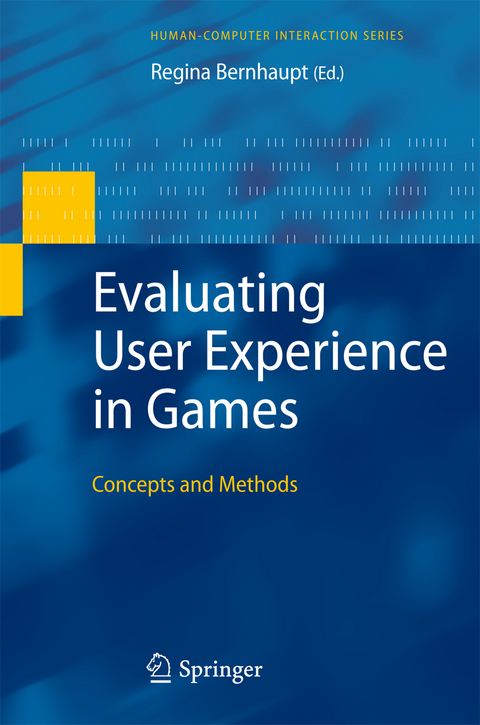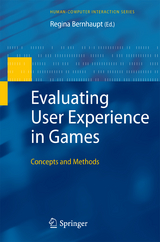Evaluating User Experience in Games
Springer London Ltd (Verlag)
978-1-84882-962-6 (ISBN)
It was a pleasure to provide an introduction to a new volume on user experience evaluation in games. The scope, depth, and diversity of the work here is amazing. It attests to the growing popularity of games and the increasing importance developing a range of theories, methods, and scales to evaluate them. This evolution is driven by the cost and complexity of games being developed today. It is also driven by the need to broaden the appeal of games. Many of the approaches described here are enabled by new tools and techniques. This book (along with a few others) represents a watershed in game evaluation and understanding. The eld of game evaluation has truly “come of age”. The broader eld of HCI can begin to look toward game evaluation for fresh, critical, and sophisticated thi- ing about design evaluation and product development. They can also look to games for groundbreaking case studies of evaluation of products. I’ll brie y summarize each chapter below and provide some commentary. In conclusion, I will mention a few common themes and offer some challenges. Discussion In Chapter 1, User Experience Evaluation in Entertainment, Bernhaupt gives an overview and presents a general framework on methods currently used for user experience evaluation. The methods presented in the following chapters are s- marized and thus allow the reader to quickly assess the right set of methods that will help to evaluate the game under development.
to Evaluation of UX.- User Experience Evaluation in Entertainment.- Frameworks and Methods.- Enabling Social Play: A Framework for Design and Evaluation.- Presence, Involvement, and Flow in Digital Games.- Assessing the Core Elements of the Gaming Experience.- The Life and Tools of a Games Designer.- Investigating Experiences and Attitudes Toward Videogames Using a Semantic Differential Methodology.- Video Game Development and User Experience.- User Experience – Decomposed.- User Experience Design for Inexperienced Gamers: GAP – Game Approachability Principles.- Digital Games, the Aftermath: Qualitative Insights into Postgame Experiences.- Evaluating User Experience Factors Using Experiments: Expressive Artificial Faces Embedded in Contexts.- User Experience – Evaluating Special Aspects of Games.- Evaluating Exertion Games.- Beyond the Gamepad: HCI and Game Controller Design and Evaluation.- Using Heuristics to Evaluate the Overall User Experience of Video Games and Advanced Interaction Games.
| Erscheint lt. Verlag | 19.5.2010 |
|---|---|
| Reihe/Serie | Human–Computer Interaction Series |
| Zusatzinfo | IX, 277 p. |
| Verlagsort | England |
| Sprache | englisch |
| Maße | 155 x 235 mm |
| Themenwelt | Mathematik / Informatik ► Informatik ► Betriebssysteme / Server |
| Informatik ► Software Entwicklung ► Spieleprogrammierung | |
| Informatik ► Software Entwicklung ► User Interfaces (HCI) | |
| ISBN-10 | 1-84882-962-0 / 1848829620 |
| ISBN-13 | 978-1-84882-962-6 / 9781848829626 |
| Zustand | Neuware |
| Haben Sie eine Frage zum Produkt? |
aus dem Bereich




